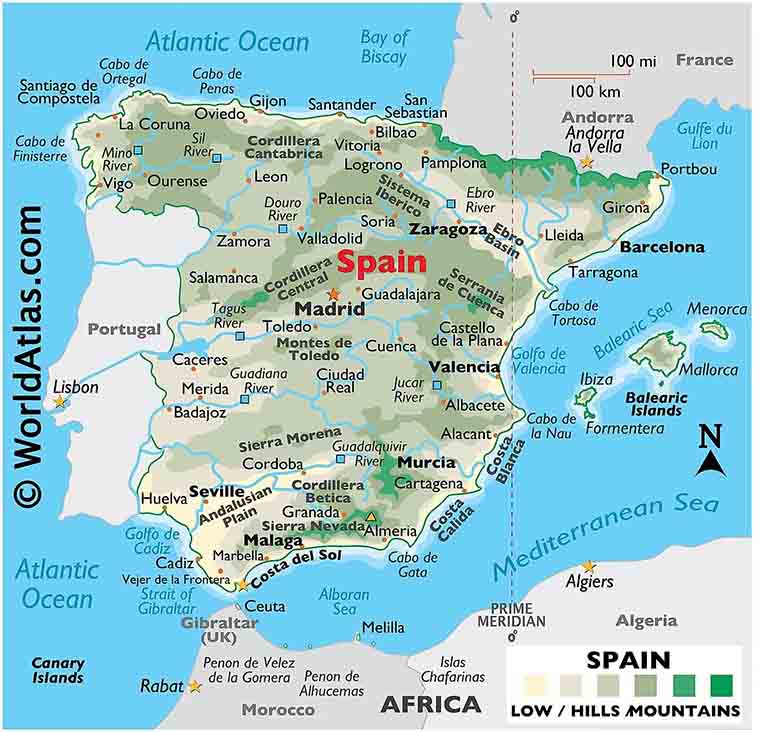The rising popularity of short-term rentals across Spain has substantially impacted local housing markets, pushing rental prices beyond the reach of many residents. In response to this crisis, recent legislation targets the regulation of these vacation properties to safeguard affordability for locals. By imposing strict limits on the number of days a property can be rented out adn requiring clear registration with local authorities, the government aims to rein in the transformative effects of overtourism in urban centers. Such measures are designed to create a more equitable housing surroundings, ensuring that long-term residents are not displaced by the influx of visitors seeking short stays.
Moreover, the new regulations include provisions for fees and taxes levied on short-term rental owners, wich will help fund local infrastructure improvements and social services. Local governments are also encouraged to develop incentives for landlords who choose to lease their properties long-term, fostering a culture of community over profit margins. With these strategic interventions, Spain is investing in a future where residents can secure affordable housing while striking a balance between tourism and the needs of its citizens. This proactive approach not only addresses current challenges but also sets a precedent for other nations grappling with similar issues.
Implementing Sustainable tourism Practices to Preserve Cultural Heritage
In recent years, the alarming rise of overtourism has posed notable threats to Spain’s cultural heritage. To combat these challenges, new legislative measures are being introduced that prioritize sustainable tourism practices. These initiatives aim to balance economic growth generated by tourism with the preservation of local traditions, historical sites, and community integrity. By enforcing regulations that limit tourist numbers in sensitive areas, Spain hopes to reduce the negative impact of mass tourism while fostering an environment where local communities can actively engage in managing their heritage.
Sustainable tourism practices play a crucial role in enhancing the visitor experience while safeguarding cultural identity. Key strategies include:
- Promoting Local Experiences: Encouraging travelers to engage in authentic cultural exchanges, such as traditional crafts and local cuisine.
- Community Involvement: Involving residents in tourism decision-making to ensure their voices are heard and their needs addressed.
- Conservation Efforts: Funding initiatives designed to protect and restore significant cultural landmarks, thereby allowing future generations to enjoy them.
Through these deliberate actions, Spanish lawmakers are not only combating overtourism but also setting a precedent for other nations grappling with similar challenges. By emphasizing sustainable practices, Spain aspires to be a model for others, showing that it is possible to cherish and sustain cultural heritage in the midst of globalization.
 Strategies for Balancing Visitor Experience and Local Quality of Life
Strategies for Balancing Visitor Experience and Local Quality of Life
As Spain grapples with the challenges posed by a rising influx of tourists, finding a harmonious balance between enriching visitor experiences and preserving the quality of life for locals has become a critical focus for policymakers. The recent legislative measures aim not only to manage tourist flows but also to ensure that local communities feel the benefits of tourism without being overwhelmed. Key strategies include:
- Implementing strict rental regulations: By capping short-term rental permits,cities are aiming to protect the residential character of neighborhoods,thus ensuring that housing remains available and affordable for locals.
- Promoting off-peak travel: Tourism boards are advocating for travel during the shoulder seasons, thereby reducing the strain on infrastructure and services during peak periods, improving both visitor enjoyment and local comfort.
- Engaging local communities: Involving residents in tourism planning helps align visitor offerings with community interests,fostering a sense of shared responsibility for both heritage and environment.
Along with these measures,enhancing accessible communication channels between tourists and locals is essential. Initiatives that encourage responsible tourism behaviors, such as educational campaigns on cultural respect and environmental sustainability, can help mitigate the negative impacts of overtourism. key components of successful frameworks include:
- Visitor education programs: By informing tourists about local customs and environmental practices, cities can cultivate a more respectful and mindful visitor base.
- Localized tourist experiences: Tailoring experiences that allow visitors to discover lesser-known areas promotes dispersal throughout the region, alleviating pressure on overcrowded sites.
- Feedback mechanisms: Establishing platforms for locals to express their concerns and suggestions regarding tourism allows authorities to adapt regulations proactively, ensuring community welfare remains at the forefront.
 Innovative Approaches to Community Engagement in Tourism Management
Innovative Approaches to Community Engagement in Tourism Management
In a groundbreaking move, Spain has set a new benchmark for sustainable tourism through innovative legislative measures aimed at balancing the demands of visitors with the needs of local communities. By fostering strong connections between policy makers, residents, and businesses, these new laws encourage a participatory approach to tourism management. Local councils are now empowered to limit short-term rental licenses and implement zoning regulations that protect residential areas. This initiative advocates for community-led tourism frameworks that prioritize authentic experiences over sheer volume, ensuring that the concerns of residents are at the forefront of the decision-making process. Regular town hall meetings and online platforms have been established to facilitate open dialog, allowing stakeholders to voice their opinions and contribute to the shaping of tourism policies.
furthermore, the laws incentivize businesses to engage with the local community by promoting sustainable practices and cultural preservation. An emphasis on eco-friendly initiatives and locally sourced products not only helps reduce the environmental impact of tourism but also supports local economies. Educational campaigns aimed at tourists about cultural respect and environmental stewardship are being rolled out, fostering a harmonious relationship between visitors and residents. By creatively integrating these innovative approaches into the legislative framework,Spain is proving that tourism can thrive while concurrently preserving the fabric of its communities.This shift represents a promising evolution in the management of tourism, where engagement and sustainability are not merely goals but integral components of a successful industry model.